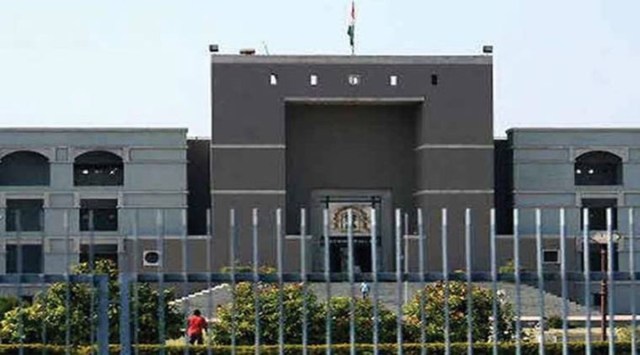Gujarat HC notice to govt on plea challenging law provisions
Other provisions pertaining to admissibility of confessions before police as evidence, as well as with respect to clauses that bar an accused from being granted anticipatory bail, were also challenged.
 The matter will be heard next on September 22.
The matter will be heard next on September 22.The Gujarat High Court (HC) on Tuesday issued a notice to the state government on a petition challenging the constitutionality of how “continuing unlawful activity” has been defined under the stringent Gujarat Control of Terrorism and Organised Crime (GCTOC) Act. Other provisions pertaining to admissibility of confessions before police as evidence, as well as with respect to clauses that bar an accused from being granted anticipatory bail, were also challenged.
The state government has been given four weeks’ time to respond to the contentions raised in the petition. It was moved by 36-year-old Mahmudhusen alias Manu Jahangirbhai Makrani (Baloch) of Rajkot, who was among the 11 booked from an alleged gang that had assaulted another group and ran riot on Bhavnagar road of the city, nearly two months ago, according to Rajkot police. The 11 were booked on August 19 in an FIR filed at Thorala police station in Rajkot.
The specific 2(1)(c) section of the Act challenged by Makrani pertains to the definition of “continuing unlawful activity”, which has been laid down in the Act as “an activity prohibited by law for the time being in force, which is a cognizable offence punishable with imprisonment for a term of three years or more, undertaken either singly or jointly, as a member of an organised crime syndicate or on behalf such syndicate in respect of which more than one chargesheet have been filed before the competent court within the preceding period of ten years and that court has taken cognisance of such offence.”
The petitioner has highlighted that when the definition of “continuing unlawful act” is read in juxtaposition with the definition of “organised crime”, as specified in the Act, it appears that one may be punished under this Act retrospectively, that is for a time when the GCTOC Act did not exist and the offences were committed. It has been submitted that this is in violation of the provisions of the Constitution. The petitioner has also challenged the provision of the GCTOC Act on the ground that the said provision does not contemplate more than one chargesheet as merely a requisite to book an offender, but rather having one chargesheet filed within the past 10 years makes it an offence in itself.
The petitioner has also challenged section 16 of the Act that stipulated that a confession made by a person before a police officer, not below the rank of superintendent of police, shall be admissible as evidence in trial. It has been submitted that this provision is “not only vague but violates all statutory and mandatory rights given to the accused.” The petition also highlights that in case a person is implicated in a confession by an accused under this Act, the one implicated shall have no chance to question the validity of the said confession.
Other sections challenged include 20(3), 20(4) and 20(5) of the GCTOC Act that pertain to barring an accused from being granted anticipatory bail and not granting bail if the accused was on bail under any other Act or GCTOC Act, when the said offence in question was committed. The petitioner has submitted that a similar clause in the Maharashtra Control of Organised Crime Act was already struck down by the Supreme Court earlier as it was found to be unconstitutional.
Makrani, in his petition, has sought that the five provisions of the Act which have been challenged, be quashed and set aside and be held in violation of the provisions enshrined in the Constitution.








